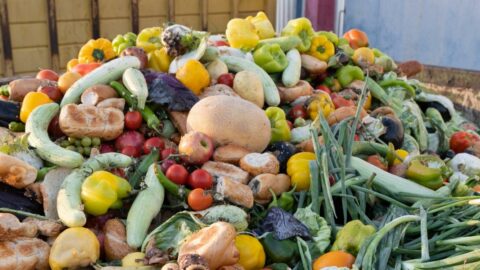What role can biofuel play in the larger picture of our renewable energy future? Disassembling the arguments of renewable energy critics is one of my favorite pastimes. It’s not a petty endeavor; I revel in the thrill of the challenge, and enjoy evaluating the strength of my position. Some stubborn bulwarks are easier to dismantle than others, but there’s one point skeptics raise that’s hard to refute. Reliability.
Our demand for energy has its peaks and valleys, but ever since the invention of the lightbulb, we require access to it 24/7. Addressing this need isn’t exactly renewable energy’s strong suit. The most hyper-efficient solar panel system in the world does you little good on a cloudy day, and much the same can be said of a wind turbine that looks sad and dreary on a still one. A piece of the puzzle is missing.
Biofuels Can Plug the Reliability Gap
Because biofuels are formed from biological processes rather than geological ones, they have 100% uptime as long as there’s a fuel source. Fortunately, those are plentiful.
Sweden’s sewage plants, for instance, have been converting methane into biogas since the 1940s. When the 1970s energy crisis swept through, they accelerated and expanded the process to include large biogas plants that break down waste from the dairy industry, slaughterhouses, and food waste from households and restaurants. Swedish municipalities also began employing organic waste digestion in sugar refineries and pulp mills. Biogas electrifies their cities, fuels their cars, and heats their homes while lowering their dependence on fossil fuels.
Outside the Scandinavian biogas idyllic, ethanol and biodiesel additives help offset the amount of gasoline we consume world-wide. Most commercially available gas has some percentage of additive included, and you may even have seen E15 (meaning 15% ethanol) cropping up at gas stations as of late.
That partial energy subsidization is an excellent metaphor for how I see biofuels fitting into the renewable energy equation. Biofuels are expensive to manufacture, and require complex processes to put together. Undoubtedly, they have more drawbacks than other forms of direct renewables like solar and wind. But they do allow cities to meet peak demand, or make it through harsh, windless winters. In doing so, biofuels offer a solution to the thorny problem of reliability that has plagued renewable energy development for decades.
Case Studies: Company Leaders Using Biofuels to Supplement Renewable Energy
Here are a few cases studies of companies developing or using biofuel technology effectively to supplement renewable energy:
Biogas Systems, Sunne, Sweden
Founded in 1985, Biogas Systems focuses on developing and manufacturing landfill gas facilities, digester plants, and treatment plants. They specifically offer a unique gas collection system for landfill sites to simultaneously reduce waste and generate electricity and heat for commercial use.
FedEx Corporation, Memphis, Tennessee
FedEx has a lot of transportation costs (fuel represented 8.2% of their operating costs in 2015) and a big carbon footprint. The company has been replacing their vehicle fleet with alternative fuel vehicles, and has set its sights on replacing 30% of its jet fuel with biofuels by 2030. Red Rock Biofuels, their supplier, is converting approximately 140,000 tons of plant biomass into 15 million gallons of renewable fuel per year.
GCL-Poly, Hong Kong, China
GCL-Poly focuses primarily on delivering silicon products to the solar industry, but realized that incinerating organic biomass is a complementary way of producing energy. An industry leader in cogeneration (producing heat and electricity at the same time) they have two biomass cogeneration plants as well as a solid waste incineration facility.
Biofuels Poised to Become A Significant Part of the Renewable Energy Revolution
Despite biofuels drawbacks (cost, infrastructural compatibility, environmental impact), they will become part of the palette of future renewable energy. As technology for the biological reactions used to produce biofuels improves, costs will fall. If their negative environmental impacts are mitigated, and vehicle engines are designed to be compatible with higher percentages of biofuel additives, they offer a promising solution to complementing other renewables in the future.
Those looking to take the pulse of biofuel development should look primarily to Europe and the United States. Sweden, Germany, and the Netherlands are all making excellent progress toward developing biogases and fuels. In raw numbers, most biofuel companies lie within America.
The transportation sector will be the first to implement biofuel on a grand-scale, as the cost savings and positive environmental impacts are quickly realized. As states like California, Colorado, and New York shift their energy consumption to renewable, they will be looking to plug up the reliability gap. Expect biofuel tech development and production to take off there first.
Unlike the dimly lit wastewater treatment plants and landfills where so much of its production takes place, the future of biofuels is bright. These biological energy sources have secured themselves an upfront seat in the renewable energy revolution by offering a fuel source that is weather agnostic, readily available, and technologically improvable. It’s a matter of when, not if, and is as exciting as it is promising.
Photo credit: Bigstock/Lumppini. Canola Field.
- Will Autonomous Vehicles Lead to Fewer Emissions? - May 10, 2022
- Biofuel: Mitigating One of Renewable Energy’s Biggest Weaknesses - May 10, 2022
- Is a Career in Environmental Management Right for You? - May 10, 2022











